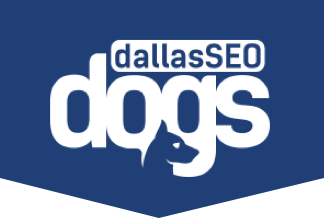Local SEO Guide For 2024

Are you a local business owner looking to attract more customers to your doorstep? In 2024, local SEO is the key to unlocking a flood of targeted, local traffic to your website and physical store. In this guide, we’ll break down the essential components of local SEO, reveal the best practices and show you how to do local SEO marketing. Finally, we’ll show how a local SEO agency like Dallas SEO Dogs can supercharge your online visibility.
What Is Local SEO?
Local SEO is a specialized branch of search engine optimization (SEO) that focuses on increasing your business’s visibility in location-based search results. When potential customers in your area search for products or services you offer, local SEO ensures your business appears prominently in search engine results pages (SERPs), map listings, and local directories.
Why Is Local SEO Important?
According to a 2022 Hubspot report:
- 97% of people learn more about a local company online than anywhere else.
- 46% of all Google searches are for local information.
- A whopping 78% of local mobile searches result in an offline purchase.
Local SEO isn’t just about rankings — it’s about connecting with the customers who are actively seeking your offerings right now.
Local SEO Best Practices For 2024
1. Claim and Optimize Your Google Business Profile (GBP)
Your GBP is your free business listing on Google Search and Maps. It’s a crucial tool for attracting local customers, helps you rank higher in local search results, provides essential information to potential customers and boosts your online credibility.
Step One: Claim Your Listing
If you haven’t already, go to google.com/business [invalid URL removed] and follow the steps to claim your business.
Step Two: Complete Your Profile
Fill out every section with accurate and up-to-date information. This includes your business name, address, phone number, website, hours of operation, categories, and a detailed description.
Step Three: Add High-Quality Photos
Showcase your products, services, storefront, and team with visually appealing images.
Step Four: Respond to Reviews
Engage with customers by responding to both positive and negative reviews. Thank them for their feedback and address any concerns professionally.
Step Five: Use Google Posts
Share updates, promotions, events, or new products/services with Google Posts. These appear directly in your GBP listing.
2. Local Keyword Research
Keyword research means identifying specific words and phrases potential customers use to search for businesses like yours in your area. Using relevant local keywords in your online content helps search engines understand what your business offers and match you with the right searches. Here’s how to go about it:
Brainstorm. Start by listing general terms related to your business and location (e.g., “bakery,” “cupcakes,” “Austin”).
Long Tails. Use tools like Google Keyword Planner or Semrush to discover more specific and long-tail keywords with search volume data (e.g., “best bakery in Austin,” “gluten-free cupcakes near me”).
Analyze competitors. See what keywords your competitors are targeting for inspiration,
3. On-Page Optimization
Optimizing your website’s content and structure to make it more search engine friendly and relevant to local searches helps your website rank higher in local results and provides a better user experience for potential customers. Key elements include:
- Mobile-Friendliness: Ensure your website looks and functions well on smartphones and tablets, as most local searches happen on mobile devices.
- Page Speed: Optimize images and code to make your website load quickly.
- Title Tags/Meta Descriptions: Include relevant local keywords in these elements to describe each page’s content.
- Header Tags: Use H1, H2, etc., tags to structure your content and incorporate keywords naturally.
- Image Alt Text: Describe images with keywords to help search engines understand their relevance.
- Local Business Schema: Add structured data markup to your website’s code to help search engines understand your business information.
4. NAP Citations (Name, Address, Phone Number)
These are listings of your business name, address, and phone number on online directories, websites, and social media platforms. Consistent NAP information is required for building trust across the web with search engines and users.
Start with the major directories. Submit your business to Google My Business, Yelp, Facebook, Bing Places, and other industry-specific directories.
Then, look for local directories. Find niche directories specific to your area or industry.
Confirm consistency. Double-check that your NAP information is identical across all listings.
5. Link Building
Backlinks (links from other websites to yours) to increase your website’s authority and credibility signal to search engines that your business is trustworthy and relevant to local searchers. How to get backlinks:
- Local partnerships: Partner with other local businesses for cross-promotion and link exchanges.
- Community involvement: Sponsor local events or charities and get listed on their websites.
- Content creation: Publish valuable content that others want to link to, like local guides, resources, or news articles.
6. Online Reviews
In other words, the customer feedback about your business posted on platforms like Google, Yelp, or Facebook. Positive reviews boost your online reputation, attract new customers, and influence local search rankings. How to get reviews:
Ask satisfied customers. Encourage them to leave a review after a positive experience.
Make it easy! Provide links to your review profiles on your website and in email signatures.
Monitor and respond to all comments. Respond to all reviews, positive and negative, to show you value customer feedback.
7. Local Content Creation
Blog posts, articles, videos, or social media content that focuses on local topics or events establishes your business as a local authority, attracts a local audience, and boosts your relevance in local search results. Some ideas to get you started:
- Local news and events: Share updates or commentary on local happenings.
- Community spotlights: Highlight other local businesses or organizations.
- Local guides and resources: Create helpful content for residents and visitors, like “10 best summer activities to do in DFW.”
The Benefits That Make Local SEO Necessary
1. Increased Website Traffic
Local SEO focuses on attracting visitors who are specifically searching for businesses like yours in your local area. These users are more likely to be interested in your products or services than random website visitors from other regions. By optimizing your website and online presence for local search terms, you increase the chances of attracting qualified leads — people who are ready to make a purchase or otherwise engage with your business.
2. Higher Conversion Rates
Local SEO generates leads who are already in the “consideration” or “decision” stage of the buyer’s journey. They’re actively looking for a solution to their specific needs or problems. Your website and online content cater to their local interests and needs, making them more likely to take the desired action, such as filling out a contact form, calling your business, or making a purchase.
3. Improved Brand Awareness
By consistently appearing in local search results, your brand becomes more recognizable and familiar to potential customers in your area. Local SEO efforts, such as positive online reviews and local citations, help establish your business as a reputable and trustworthy option within your community.
4. Competitive Advantage
Local SEO can level the playing field, helping small businesses compete with larger corporations by optimizing their online presence for local searches. By focusing on local keywords and building strong local citations, you can outrank your competitors in local search results, capturing a larger share of the market.
5. Cost-Effective Marketing
Local SEO is generally more affordable than traditional advertising methods like TV, radio, or print. It provides a higher return on investment (ROI) by targeting a specific audience that is actively searching for your products or services. The effects of local SEO are also long-lasting: once you’ve established a strong online presence, you can continue to attract customers and generate leads without ongoing advertising expenses.
Additional Considerations
Local searches are often conducted on mobile devices, so ensure your website is mobile-friendly to provide a seamless user experience. Likewise, optimize your website for voice search queries as voice assistants like Siri and Alexa are increasingly used for local searches.
Transform Your Local SEO With SEO Dogs
Investing in local SEO services is a strategic move for any business looking to expand its reach, attract qualified leads, and establish a strong presence within their local community. The benefits are numerous, including increased website traffic, higher conversion rates, improved brand awareness, a competitive advantage, and a cost-effective marketing approach.
However, we know navigating the complexities of local SEO can be a daunting task. That’s where Dallas SEO Dogs comes in. We are a top-tier SEO company with a proven track record of helping businesses like yours achieve top rankings in local search results.
Our local SEO services include:
- Comprehensive Local SEO Audits
- Google Business Profile Optimization
- Local Keyword Research and Strategy
- On-Page and Technical SEO
- Local Citation Building and Management
- Link Building Campaigns
- Content Creation and Optimization
- Review Management and Reputation Enhancement
Don’t let your competitors steal your local customers. Partner with Dallas SEO Dogs, the leading local SEO agency in Dallas, and unlock the full potential of your business in 2024 and beyond. Contact us today for a free consultation!
